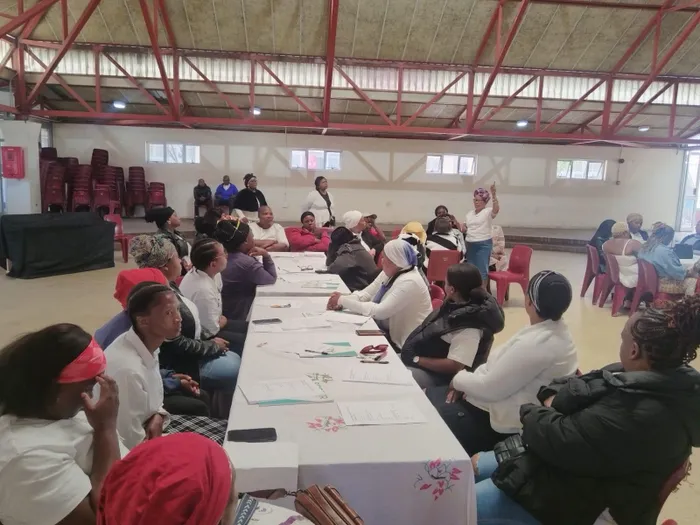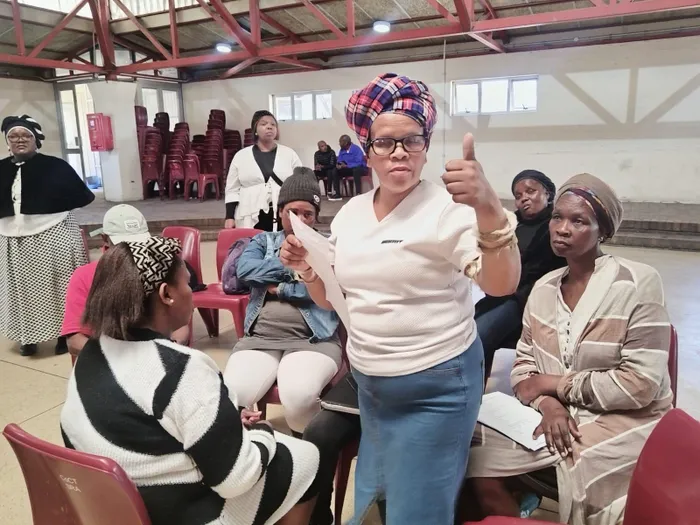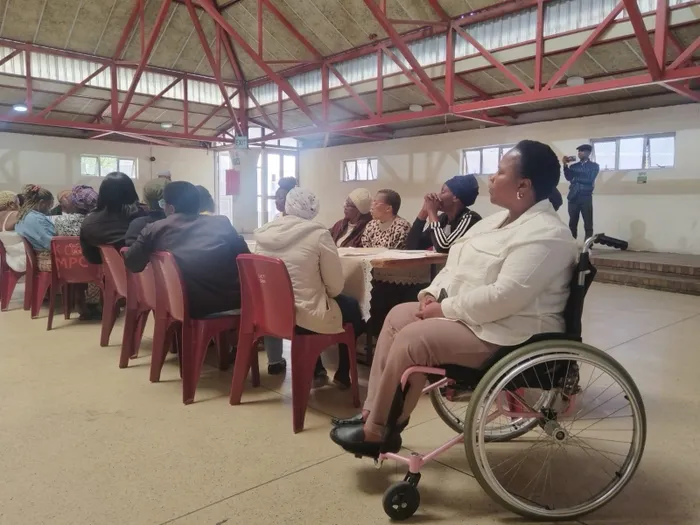
Carers and and guardians came to the Khayelitsha Training Centre to listen to speakers.
Image: Phiri Cawe

Nosipho Mngxosha from Heads Up encouraged parents of disabled children to share the challenges they face with others
Image: Phiri Cawe

The Metro East Disability Forum held a workshop to bring awareness and educate parents about those who live with disability.
Image: Phiri Cawe
As South Africa closed Women’s Month with tributes to trailblazers and icons, the Metro East Disability Forum turned the spotlight on another group often overlooked — parents and carers of people living with disabilities.
On Friday, August 29, the forum hosted a workshop at the Training Centre in Khayelitsha to raise awareness of the daily challenges faced by families and to encourage stronger community support.
Speakers emphasised that preventing neglect requires awareness, education, and active involvement from parents, caregivers, family members, and the wider community.
While speakers and parents shared differing views, they unanimously agreed that one of the greatest issues is that discussions surrounding disability often exclude the voices of disabled individuals themselves.
Forum representative Lindelwa Madikane said the gathering aimed to strengthen and encourage parents and others who care for individuals with disabilities. “We also encourage them to form support groups. There are those who do not support their children, and we discourage that. We urge the community to accept people with disabilities. They should not neglect them; they should understand that they are also people like everyone else,” she said.
Ms Madikane added that while disabled individuals may be physically dependent on others, they deserve tolerance and love.
Nosipho Mngxosha from Heads Up encouraged parents of disabled children to share the challenges they face with others. She said that support is available through many organisations, including hers, and said the government was also beginning to assist.
"But we urge parents to understand and accept their children's circumstances," she said. "Most importantly, parents need to support their children. We understand that many are traumatised upon realising their children's conditions, but it should not be that way. They need to support their children."
Ms Mngxosha said she was happy to see women gathered under one roof to share their challenges.
Parent Babalwa Kotsela-Madikane shared her experience of monitoring her 22-year-old daughter, who is intellectually challenged. She recalled the moment she realised her daughter had a disability when, at the age of seven, her daughter returned home with snuff instead of bread. "That is when I opened my eyes and went to her school, only to find out that the teachers had long noticed her condition. But you must see her work; she does the washing and sweeping—it's unbelievable," she said.
Ms Kotsela-Madikane urged parents to monitor their children's behaviour closely. "Sometimes parents take things for granted, only to discover that their children have conditions," she said.